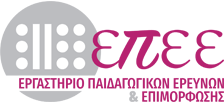Inclusive Education
The field of inclusive education is founded on the human right to equal access and participation, aiming to ensure learning and development for all individuals without discrimination, particularly without discrimination on the basis of disability. From this perspective, research investigates the processes taking place at both policy and practice levels, focusing on the extent to which they point toward systemic changes that foster more inclusive care and education centres, school settings, and frameworks related to adult life, including the transitions between them. The research also focuses on themes such as: peer collaboration between individuals with and without disabilities; the connection between families and learning environments; and the initial training and professional development of professionals in inclusive education and related fields, such as early childhood intervention, parental empowerment, and vertical transitions. While some of these themes have been studied within the broader domain of special education, both nationally and internationally, inclusive education should not be equated with special education. The research field of inclusive education follows a distinct path that does not align with that of special education, which is based on a categorical approach to disability and promotes practices and interventions aimed at ‘correcting’ the individual characteristics of persons with disabilities in accordance with a normative model, often leading to their segregation or assimilation into static learning and other environments.





